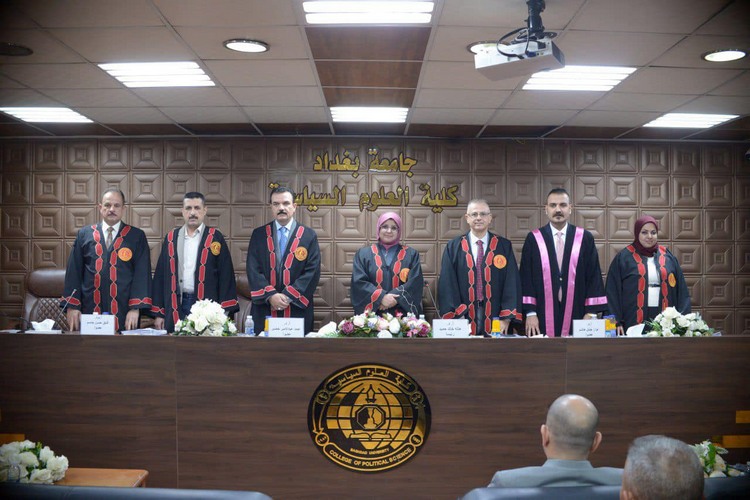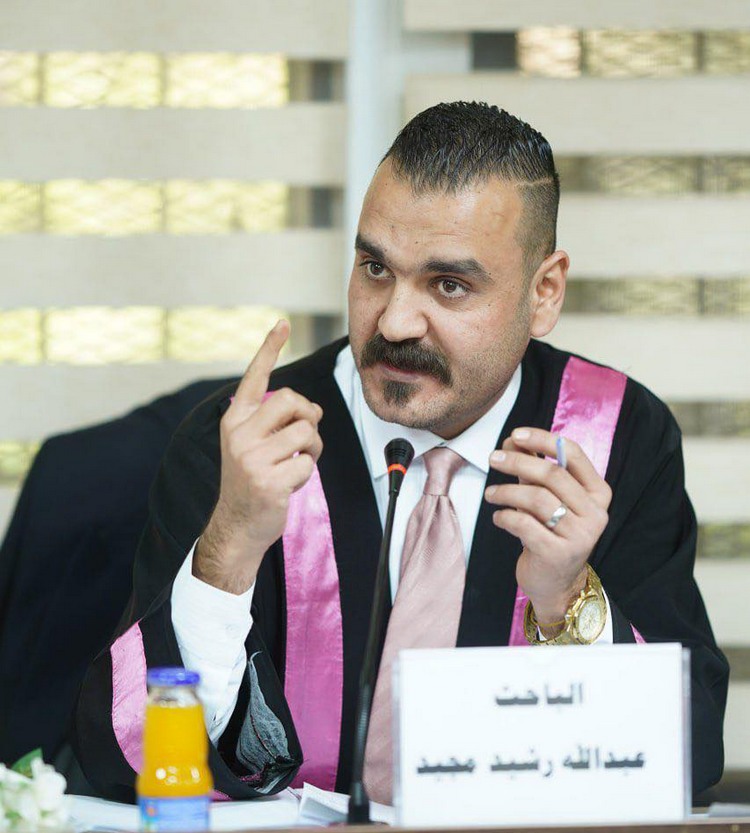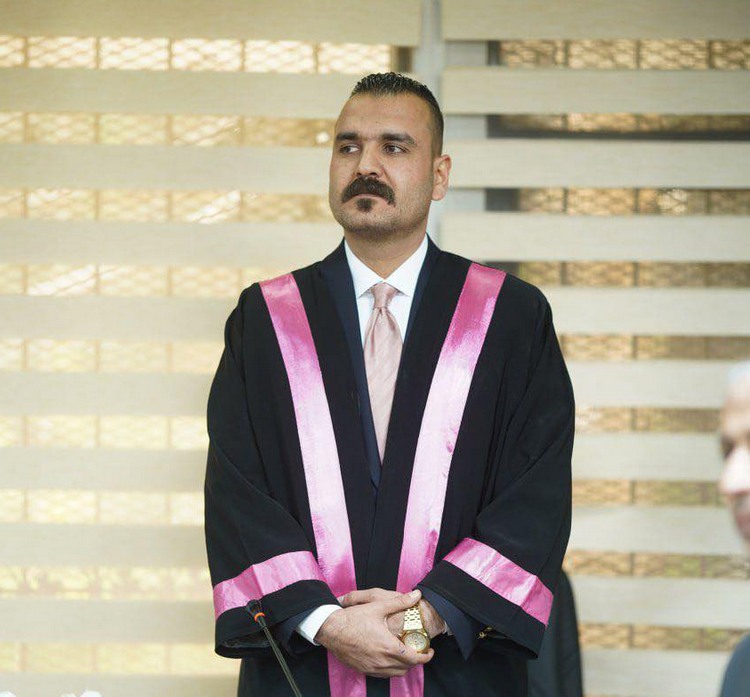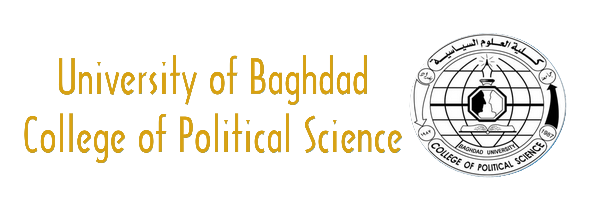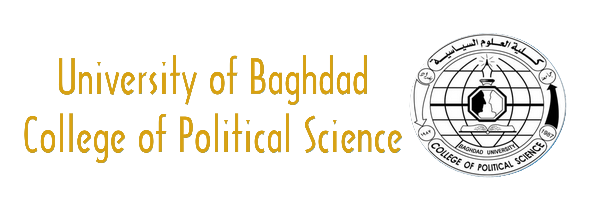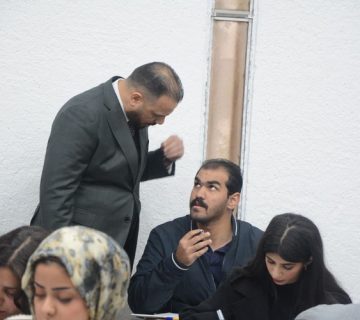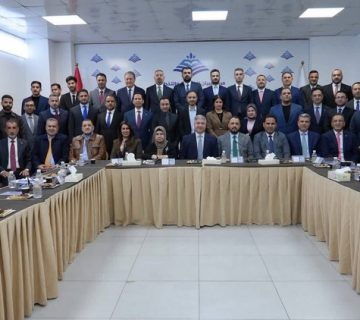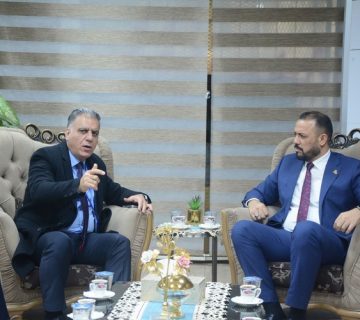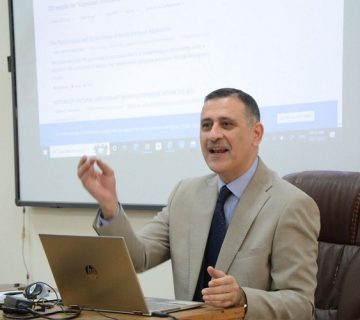The College of Political Science at the University of Baghdad discussed the PHD thesis entitled “International Cooperation in Anarchy: Situational Dialogue and the Challenges of Collective Action in International Relations,” by the student Abdullah Rashid Majid under the supervision of Professor Ammar Hameed Yassin.
The thesis addressed the phenomenon of international cooperation in the environment of self-help anarchy, investigating the divergence in opinions among scholars in the field of international relations regarding this phenomenon. The study covered the theoretical foundations of the topic through a situational dialogue between neorealism (structural realism) and neoliberalism (institutionalism), as well as reviewing the positions and arguments that led each party to their conclusions defended within the field.
Moreover, the study examined the circumstances and reasons that hinder or encourage cooperation between states in the anarchic nature of the international system. New realists argue that states’ concern for their security and survival in a competitive environment makes cooperation among system units extremely difficult. With increasing systemic constraints and uncertainty, concerns about relative gains arise, collective action problems emerge, and cooperation levels in the international environment consequently decline. In contrast, new liberals argue that the constraints of the international system do not eliminate opportunities for cooperation between states and do not prevent its realization in reality. With the increasing role of international institutions, which provide credibility, monitor compliance, and promote reciprocity, the malignant outcomes of anarchy diminish, and opportunities for cooperative arrangements between units of the international system increase.
At the end of the viva, the researcher was awarded PHD degree with a grade of “very good,” wishing all our dear students success and prosperity.
